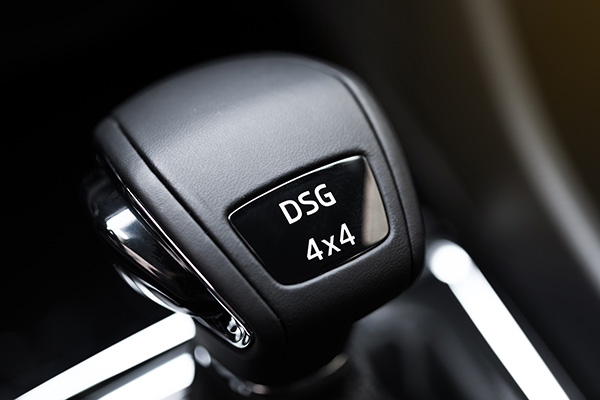
When it comes to performance and driving dynamics, the transmission of your vehicle plays a key role in how your car feels on the road. Among the various types of gearboxes available, DSG (Direct-Shift Gearbox) and SMG (Sequential Manual Gearbox) transmissions are often discussed due to their advanced technology and ability to deliver faster shifts. But what exactly sets these two transmission systems apart? If you’re a car enthusiast or just someone looking to better understand the options in modern transmissions, this guide will walk you through the core differences between DSG and SMG systems.
What Is a DSG Transmission?
The Direct-Shift Gearbox (DSG), often referred to as a dual-clutch transmission, combines the efficiency of a manual gearbox with the ease of an automatic transmission. As the name suggests, the DSG uses two separate clutches—one for the odd-numbered gears and one for the even-numbered gears. This clever design allows for nearly instantaneous gear shifts, which improves acceleration and smoothness without the delay that traditional automatics can sometimes experience.
Unlike a conventional automatic transmission, which uses a torque converter, the DSG’s dual-clutch setup pre-selects the next gear. This means that when you’re accelerating in second gear, for instance, third gear is already prepped and ready to engage as soon as you need it. The result? Quicker shifts, better fuel economy, and a more engaging driving experience.
What Is an SMG Transmission?
The Sequential Manual Gearbox (SMG), on the other hand, is a transmission system derived from motorsport technology. It operates similarly to a manual gearbox, but instead of using a traditional clutch pedal, the SMG relies on hydraulics and electronic systems to control gear shifts. Essentially, it’s a manual transmission that shifts gears automatically for you without needing to manually engage a clutch.
One of the biggest differences between SMG and DSG is how the shifts are executed. While DSG uses two clutches to deliver smooth and quick transitions between gears, SMG often feels more "mechanical" in its shifting style. It requires the driver to time their shifts or use paddles on the steering wheel, and the shifts themselves can be slightly more aggressive compared to the seamless transitions found in DSG systems.
Key Differences Between DSG and SMG Transmissions
Now that we have a basic understanding of what DSG and SMG transmissions are, let’s explore the key differences that set these two systems apart:
1. Shift Speed and Smoothness
One of the most significant advantages of the DSG transmission is its lightning-fast, almost imperceptible shifts. Thanks to its dual-clutch system, the DSG gearbox can change gears in fractions of a second without the noticeable lag you might experience with an SMG transmission. This makes the DSG ideal for those who value comfort alongside performance, as it offers smooth transitions from one gear to the next.
In contrast, the SMG can be slightly harsher when shifting. Because the SMG is based on a single-clutch system, shifts are not as rapid or seamless as in a dual-clutch setup. That said, the SMG’s deliberate, mechanical feel can appeal to drivers who enjoy a more race-inspired, manual-like driving experience.
2. Driving Experience
If you’re seeking a driving experience that mimics a traditional automatic with the added benefit of faster shifts, the DSG is the clear winner. Its dual-clutch design makes it feel like an automatic transmission, but with much quicker responsiveness. The DSG is also well-suited for everyday driving, offering both convenience and efficiency.
On the other hand, the SMG is more geared toward performance enthusiasts. Since SMG transmissions were originally developed for racing, they provide a more raw, manual-like experience. Drivers have greater control over the gear changes, but at the expense of the seamlessness offered by DSG. If you enjoy being more "connected" to the shifting process and don't mind slightly more abrupt shifts, the SMG might be more your style.
3. Technology and Components
The key technological difference between DSG and SMG transmissions is the use of clutches. The DSG’s dual-clutch system uses one clutch for odd gears and another for even gears, allowing for pre-selection of gears and nearly instant shifts. This makes the DSG system more complex but also more efficient when it comes to fuel economy and performance.
The SMG, on the other hand, uses a single clutch, much like a manual transmission. The transmission is shifted sequentially, meaning that gears can only be selected in order (e.g., from 1st to 2nd, or 2nd to 3rd). While this provides a more engaging driving experience, it doesn’t match the smoothness or speed of a DSG system.
4. Application and Usage
DSG transmissions are commonly found in performance cars, sports sedans, and even some luxury vehicles, thanks to their balance of efficiency and drivability. Many drivers appreciate the versatility of the DSG, which allows for both relaxed daily driving and spirited performance when needed.
In contrast, SMG transmissions are typically seen in high-performance vehicles, particularly those designed for track use. BMW’s M-series cars, for example, have featured SMG transmissions in the past. The SMG’s racing heritage makes it more appealing to drivers who prioritize control over outright comfort.
Which Is Better: DSG or SMG?
There isn’t a clear "better" transmission when it comes to DSG vs. SMG—it really comes down to personal preference and driving style. The DSG is likely the better choice if you want a transmission that shifts quickly and smoothly without sacrificing comfort. It’s perfect for those who appreciate the convenience of an automatic with the added thrill of faster gear changes.
However, if you’re a purist who enjoys the raw, tactile feel of a race-inspired gearbox, the SMG may be more your speed. While it might not offer the same level of refinement as the DSG, the SMG delivers an engaging driving experience that brings you closer to the mechanics of the car.
For reliable vehicle inspections, transmission services, and more, trust GermanTech MotorWorks. Our trained professionals are here to keep your car in peak condition—schedule your next visit today!